5 Ways To Combat Stress With Food
Stress, especially chronic stress is one of the main factors that contribute to our health challenges today. A lack of energy, anxiety, difficulties with memory and concentration, poor sleep, issues with digestion and even chronic illnesses and autoimmune conditions - stress plays a role in them all.
However, while completely eliminating stress from your life may not be possible, it is feasible to reduce its negative impact on your health and wellbeing. And one of the things that can help you achieve that is optimising your nutrition. Here are 5 steps you can take to get started:
(1) STOCK UP ON ANTIOXIDANT RICH FOODS
Chronic stress can not only make us feel anxious and unsettled emotionally, but can also trigger oxidative stress at a physical level, which can then lead to cell and tissue damage.
One of the powerful substances that help protect your cells against this damage are antioxidants,
so making sure that you have enough of them in your daily nutrition is key.
Some of the top sources of antioxidants include:
berries (blueberries, strawberries, raspberries, cranberries, blackberries),
fruits and vegetables of orange colour, that are high in vitamin A (e.g. carrots, pumpkins, squash, sweet potato, oranges, cantaloupe),
garlic and onions, which are rich in sulphur - another powerful antioxidant,
nuts, due to the high level of of vitamin E they contain and
herbs like parsley and thyme, which are rich in flavonoids.
(2) LOOK AFTER YOUR GUT HEALTH
Your gut is one of the first things that can get out of balance because of chronic stress. This can then negatively affect the absorption of many of the nutrients that you get from food – and with that, your overall health and well-being.
The first step to making sure that this doesn’t happen is to
Include in your meals plenty of probiotic foods like milk kefir, water kefir, live yogurt and cheese, unpasteurized sauerkraut and other fermented food like kimchi, kombucha, natto and tempeh.
These will help replenish the beneficial bacteria in your gut, support your gut flora balance and reduce the negative impact of stress on your health.
(3) EAT MORE FATTY FISH
Stress also causes inflammation in the body, and it’s known that chronic inflammation contributes to many different health challenges, including heart disease, autoimmune conditions, diabetes, cancer, Alzheimer’s and possibly even depression.
So if you feel chronically stressed, it’s important that you do what you can to counter this inflammatory effect of stress -
And one of the nutrients that can help you achieve that is Omega 3.
Omega 3 is a healthy fat that is found in a number of different foods, with one of the best sources being fatty fish. To help you get enough of this beneficial fat through your nutrition, include fish like salmon, herring and sardines in your meals twice a week. Other fatty fish like tuna and mackerel are also great, but you might want to limit them to 1x a month, due to their high levels of mercury.
(4) INCLUDE LEAFY GREENS IN YOUR DAILY MEALS
When you’re stressed, your body uses certain nutrients that are essential for your health much faster than it normally would. One of these nutrients is magnesium, which is a mineral that’s involved in over 300 processes in your body and as such plays a central role in your well-being.
Chronic stress can deplete your body of magnesium to a level where it can trigger various different health challenges, so making sure that you have enough of magnesium-rich foods in your daily meals is important to reduce the negative effects of stress.
Magnesium also helps to keep the levels of cortisol, a stress hormone, in check, and therefore directly contributes to stress reduction.
Some of the best sources of magnesium are dark green leafy vegetables, including spinach, rocket, kale and swiss chard, so make sure to include them in your meals at least once a day.
(5) PRIORITISE WHOLE GRAINS
Whole grains are rich in multiple B vitamins, which are some of the nutrients that your body loses at a faster rate than normal when you’re stressed.
If stress is a regular occurrence in your life it’s important to ensure that your nutrition is rich in whole grains, so that you can replace the B vitamins that your body has lost due to stress and prevent potential negative effects on your health.
Some research studies also suggests that whole grains may promote the production of a ‘feel-good’ hormone serotonin, boosting your body’s ability to cope with stress.
If you can, include whole grains in your meals two to three times a day. Some of the best whole grains (and pseudo-grains) you can choose from are oats, brown rice, barley, spelt, whole-wheat, bulgur wheat, quinoa, millet and buckwheat.
So these are the 5 simple tips that will help you get started and reduce the negative impact on your body. And if you want to go further and discover how to fully optimise your nutrition so that you can improve your health and feel at your best every day, apply for a free discovery call with us below and let’s have a chat about how we can help you achieve this goal.






